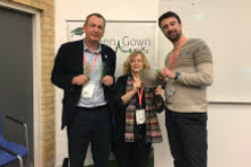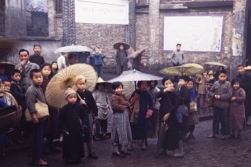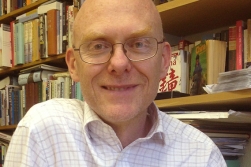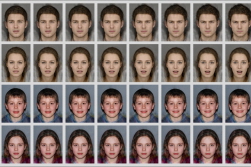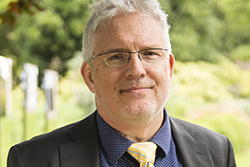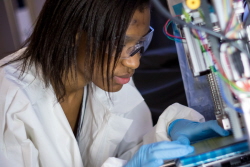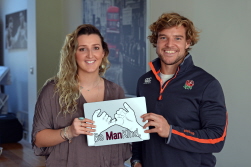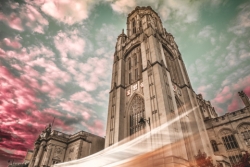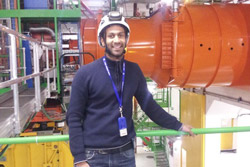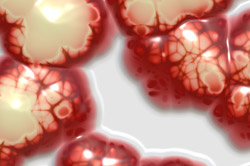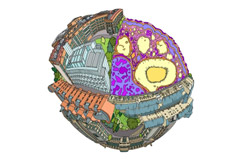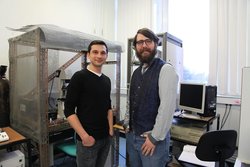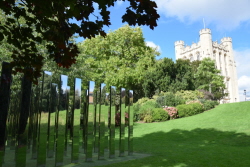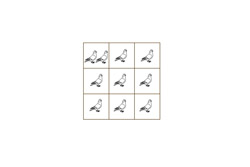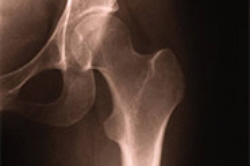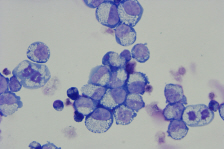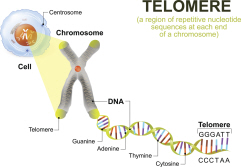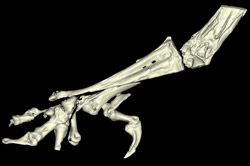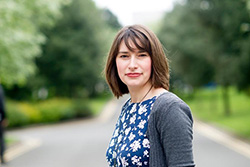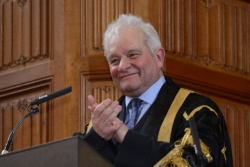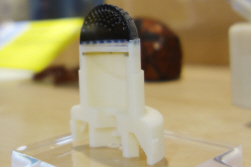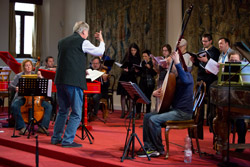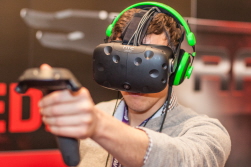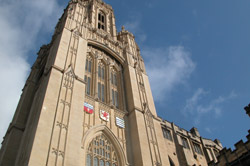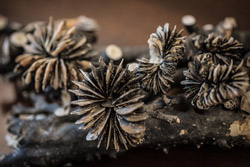International award for students building a healthier, more sustainable Bristol
The value of 8,000 Bristol students working with 250 city partners on sustainability engagement has been recognised by a prestigious International Green Gown award.
The value of 8,000 Bristol students working with 250 city partners on sustainability engagement has been recognised by a prestigious International Green Gown award.
Dr Trevor Thompson, GP and Head of Teaching at the Centre for Academic Primary Care, has won the Royal College of General Practitioners' 2016 Kieran Sweeney Prize for medical writing by GPs.
Images of China from the University of Bristol’s extensive Historical Photographs of China archive have been on display in an exhibition in Chongqing, Sichuan province.
Professor Robert Bickers’ new book on China provides a fresh, accessible and comprehensive account of how China overcame foreign domination in the 20th century to go on to become the world’s second largest economy.
Young people with autism spectrum conditions (ASC) have difficulties recognising and distinguishing between different facial expressions, according to research from one of the largest studies to look at emotion recognition in children and adolescents with ASC. The University of Bristol findings are published today [31 Mar 2017] in the Journal of Autism and Developmental Disorders.
An academic from the University of Bristol School of Experimental Psychology and the Cabot Institute is among 47 leading social scientists who have been conferred as Fellows of the Academy of Social Sciences.
The supercomputer, known as Isambard, is being developed by GW4 researchers in collaboration with the Met Office and Cray Inc.
A team from Bristol Poverty Institute, a new specialist research institute at the University of Bristol set up to tackle global poverty, have been working with UNICEF to provide technical advice and assistance to the Ugandan Bureau of Statistics (UBoS) and the Economic Policy Research Centre (EPRC) to help integrate multidimensional child poverty measures into Ugandan National Statistics.
Director of Bristol’s iconic Engine Shed, Nick Sturge, has been announced in the Sunday Times prestigious Maserati 100 index; a list of game-changing entrepreneurs who are disrupting the business world.
Composites are the materials of the future and are critical to reducing weight, energy consumption and the generation of CO2 in transport applications. Research at Bristol Composites Institute (ACCIS) at the University of Bristol, a newly created Specialist Research Institute (SRI), is delivering new technology and innovation through its research programmes, which will benefit future fuel emissions.
A hard hitting campaign, Be ManKind, launched this week to address the stigma surrounding male mental health and suicide through the medium of photography.
Developing links with China’s universities will be a key focus when leaders and academics from the University of Bristol travel to China next month for the Graduation Celebration in Beijing.
A particle physicist from the University of Bristol has been appointed to a senior role at one of the largest and most prestigious scientific projects in the world.
The European Research Council (ERC) will award a total of €9M in grants to Bristol academics under its Advanced Grant scheme. These grants support exceptional, professorial-level research leaders in undertaking ground-breaking, high-impact research projects.
Targeting dementia in the earlier stages of the condition could be critical for the success of future therapies, say researchers from the University of Bristol, who have found that the very earliest symptoms of dementia might be due to abnormal stability in brain cell connections rather than the death of brain tissue, which comes after.
Gaston Fornes, Senior Teaching Fellow in the School of Sociology, Politics and International Studies is the second academic from the University of Bristol to gain recognition as a Principal Fellow of the Higher Education Academy.
The University of Bristol is at the forefront of synthetic biology research, teaching and innovation.
This week a record number of children from 11 local state primary schools are due to join more than 100 student volunteers from the University of Bristol.
A film produced by PhD students from the University of Bristol has been shortlisted for the BBC Focus Prize at this year’s Bristol Science Film Festival.
The rich horticultural history and biodiversity of some of Bristol’s most beautiful gardens will be revealed to the public through a series of guided tours and events, starting next month.
A professor of physics from the University of Bristol's new Quantum Information Institute has been awarded the prestigious 2016 Cozzarelli Prize for a paper published in the journal, Proceedings of the National Academy of Sciences.
New research has found NHS patients admitted to hospital at the weekend with a hip fracture are at no greater risk of death compared to weekdays. In fact, the risk of death during the hospital stay was lower at the weekend than in the week. Only a delay to surgery; undergoing surgery on a Sunday, when provision for operations in many hospitals is less, being discharged from hospital on a Sunday; or out of hours were associated with an increased risk of death at 30 days.
Researchers have generated the first immortalised cell lines which allow more efficient manufacture of red blood cells. The team, from the University of Bristol and NHS Blood and Transplant, were able to manufacture red blood cells in a more efficient scale than was previously possible.
Academics from the University of Bristol’s newly formed Institute for Migration and Mobility Studies have expressed disappointment at last month’s ruling by the Supreme Court which decided the minimum income immigration rule is lawful.
Engineers from the University of Bristol are getting ready to don their red noses and ping pong in aid of Comic Relief.
Telomeres are regions of repetitive DNA at the end of human chromosomes, which protect the end of the chromosome from damage. Whilst shorter telomeres are hypothesized biological markers of older age and have been linked to many diseases, including cancer and cardiovascular diseases, whether these associations are causal is unknown.
Living birds have a more crouched leg posture compared to their dinosaurian ancestors, which generally are thought to have moved with straighter limbs - similar to the postures of humans.
Dr Claire Haworth, Reader in Behavioural Genetics and co-director of the Dynamic Genetics Lab, has been awarded the 2017 Spearman Medal from the British Psychological Society.
Sir Paul Nurse, a Nobel Prize-winning scientist and former President of the Royal Society, will today [22 March] be installed as Chancellor of the University of Bristol.
Peer review is a cornerstone of the scientific publishing process but could artificial intelligence help with the process? Computer scientists from the University of Bristol have reviewed how state-of-the-art tools from machine learning and artificial intelligence are already helping to automate parts of the academic peer-review process.
A team of researchers is to develop a biomimetic forebrain for controlling 3D-printed robot hands with a sense of touch. They aim to create a biomimetic forebrain based on computer modelling of a mammal’s neural system that communicates touch in humans and animals, and use this to perform general manipulation tasks in robots.
Bristol Plays Music and the University of Bristol are joining forces to present a unique symposium on Renaissance music and the life and work of the composer Claudio Monteverdi (1567-1643).
Researchers have shown stem cells from the umbilical cord may hold the key to a new generation of graft and could reduce the number of surgeries required to treat young children born with certain types of congenital heart disease.
Dr Nic Timpson has recently been appointed to the post of ALSPAC Principal Investigator. He brings a distinguished academic pedigree and has made a long-term commitment to leading ALSPAC to ongoing success.
Bristol has been named the best place to live in Britain by the Sunday Times, which praises the city for being 'cool, classy and supremely creative'.
Virtual Reality – or VR - has long been the idea of science fiction but now it is happening and the impact on society is potentially huge. The University of Bristol and the Digital Cultures Research Centre at University of the West of England (UWE Bristol) are sponsoring a special track at this year’s VR World Congress [Tuesday 11 to Thursday 13 April] to encourage debate into what this may mean for everyone.
The University of Bristol has today (Monday, 20 March) launched seven new research institutes reflecting the University’s strength and depth in key specialisms.
One of Bristol’s most iconic buildings will be home to a giant replica of the moon this week.
The Museum of the Moon comes to the University of Bristol.
We know a lot about how carbon dioxide (CO2) levels can drive climate change, but how about the way that climate change can cause fluctuations in CO2 levels?
